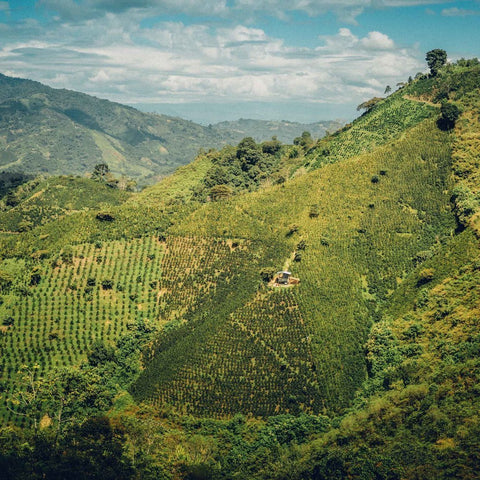Our Huila Decaf contains coffees from the municipalities of Acevedo, Algeciras, Neiva, Oporapa, Palermo, Palestina, Pitalito and Tello—therefore this blend represents some of the very best coffee from across the entire department of Huila, from Tello, Neiva and Palermo in the north, all the way to Palestina, Pitalito and Acevedo in the south, and of course passing through Oporapa on the way down.
These municipalities are home to experienced coffee growers, who in the last couple decades have greatly increased their production of specialty coffee, putting Huila on the map as the region with the highest coffee production by volume in Colombia and gaining Denomination of Origin.
The blend is made up of beans from Bourbon, Castillo, Caturra, Colombia, Maragogype and Tabi trees, hand-selected on several different fincas. These varieties grew on sloping green hillsides, that sit at 1,500 m.a.s.l and ascend all the way up to 1,950 m.a.s.l.
All of Azahar’s decaf coffees are decaffeinated at the Descafecol plant in the city of Manizales. The decaffeination agent we use is called ethyl acetate and is naturally derived from a mix of acetic acid (vinegar) and a natural extract distilled from sugar cane, blackberries, beets or sometimes grapes. Next, the beans are dried but not completely, 10- 12% humidity remains, and then the open bean is sealed with natural wax that in no way affects the flavour, fragrance or aroma of the coffee.
Before undergoing this process, the beans were treated to the beneficio or post-collection processing. After the cherries were carefully hand-selected for peak ripeness, they were brought in from the field, and left intact for anywhere from twelve to 48 hours, before being de-pulped, and fermented in tanks for 18 to 60 hours. The coffee was then washed and put on to dry on several different drying systems (raised beds, parabolic greenhouses and mechanical dryers or silos) for eleven to 20 days.




